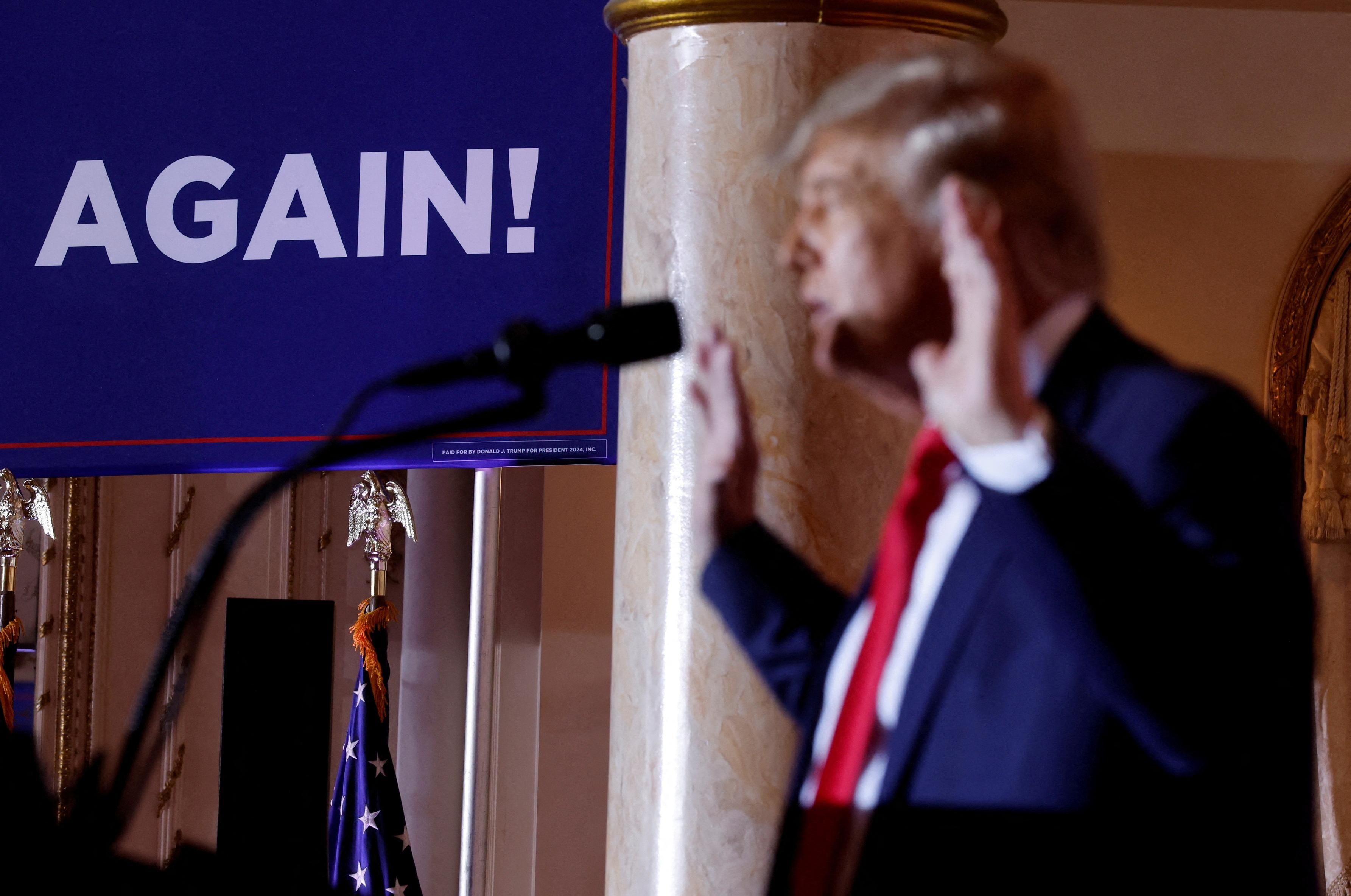Americans were watching as Donald Trump announced his presidential candidacy on Tuesday night, but Trump’s entry into the race also grabbed the attention of political leaders around the globe.
It’s not hard to understand why. During his presidency (2017-2021), Trump was the first US leader since the 1930s to question the assumption that a global leadership role for Washington was good for Americans. In the process, he tried to fundamentally redefine relationships with friends and foes on a scale that caught world leaders off guard.
Some Americans, both Democrats and Republicans, see Trump as damaged political goods and don’t believe he can win. But most world leaders know it’s dangerous to underestimate Donald Trump or the personal connection millions of Americans feel with him. They know they must prepare for the possibility of Trump 2.0.
In Ukraine, President Volodymyr Zelensky surely wants to see Trump defeated. He knows there are many Republicans who reject Trump’s argument that US military and financial support for Ukraine’s war effort is too expensive for American taxpayers, but he also knows that a Trump victory might change minds and policy.
In Russia, President Vladimir Putin would love to see Trump’s return, not just because it might weaken or end US support for Ukraine, but because Trump’s antagonism toward many European governments, his broader skepticism about the value of NATO, and his affinity for Putin would offer a welcome alternative to any other potential candidate.
In most European capitals, a Trump win would be very bad news. The EU is already managing a serious economic slowdown, paying more for defense against Russia, and completely redrawing its energy map. Another Trump assault on transatlantic relations could only make matters worse. But a Trump victory would advance the argument of French President Macron and others that Europe needs its own foreign and defense policy, one that doesn’t depend on Washington. And European populists would welcome the return of Trump, who many see as a friend and source of encouragement.
In China, leaders will have mixed feelings. President Xi Jinping wants a US president he can negotiate with, and he knows a Trump administration might offer fewer lectures about how China should manage its economy, its foreign policy, and its approach to human rights at home. Xi would also welcome more friction between the US and Europe. But he also knows China remains one of Trump’s favorite political targets and that the tariffs Washington continues to enforce against China have Trump’s name on them.
In Japan and South Korea, Prime Minister Fumio Kishida and President Yoon Suk-yeol are hoping to avoid more demands from Trump that they pay the US much more for their defense, and both are wary of Trump’s history of outreach to North Korea’s Kim Jong-un.
In Iran, Supreme Leader Ayatollah Ali Khamenei wants no part of a Trump administration that would treat his country as the pariah of the Middle East, though Saudi Arabia’s future king, Mohammed bin Salman would like that very much. The Biden administration has tried unsuccessfully to engage Iran and scorn the Saudis. Leaders in Tehran and Riyadh know Trump would do the opposite.
In Canada and Mexico, Prime Minister Justin Trudeau and President Andrés Manuel López Obrador know that a Trump presidency would mean more aggressive renegotiations of trade relations. Both leaders have enough challenges at home without that.
For all these leaders, the future of their relationships with Washington isn’t simply a matter of whether Trump wins the 2024 election or even just the Republican nomination. They also know his candidacy could influence the positions of other candidates on issues they care about.
That’s why all of them will be watching closely as the next race for the White House begins to take shape.
This was featured in Signal, the daily politics newsletter of GZERO Media. For smart coverage of global affairs that normal people can understand, subscribe here.
